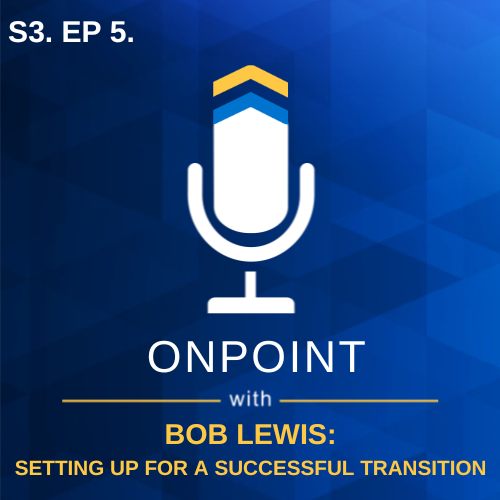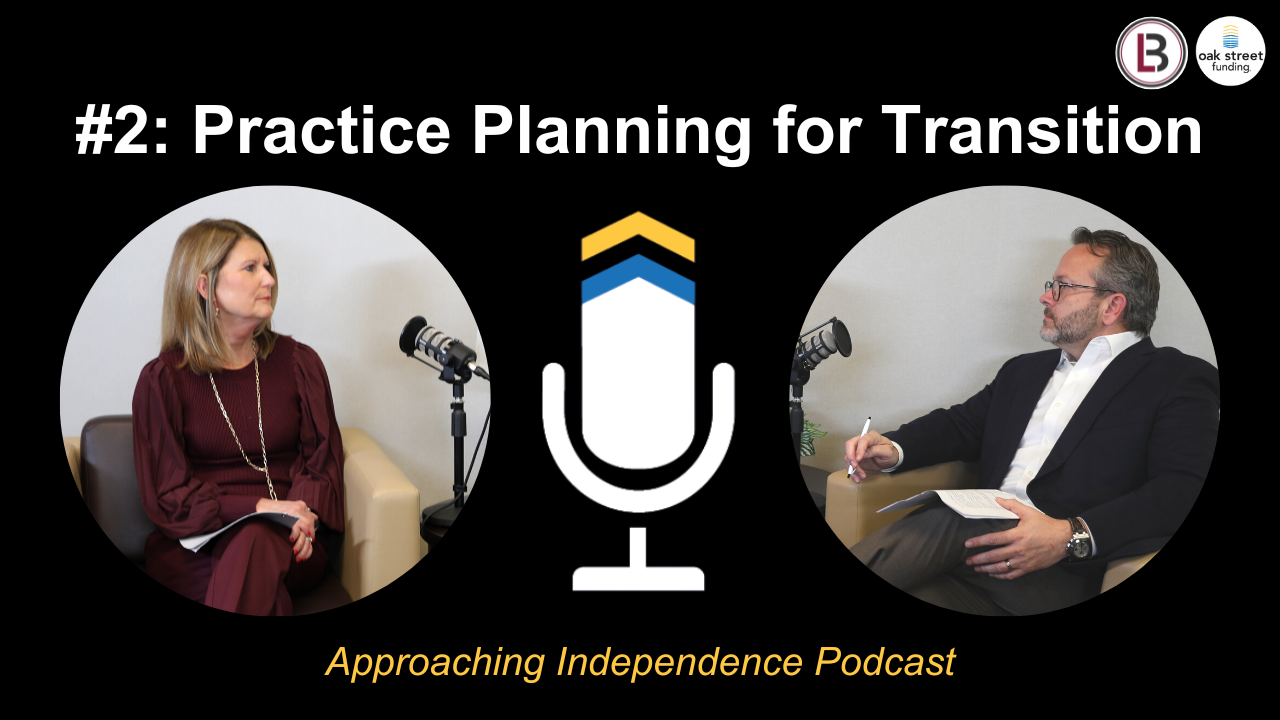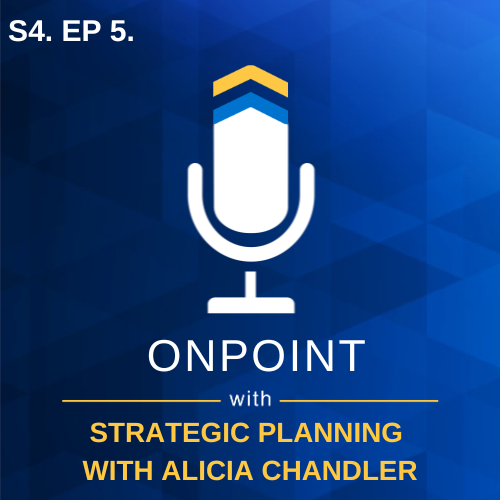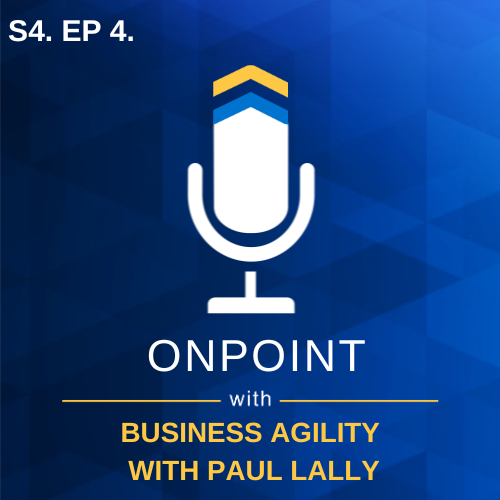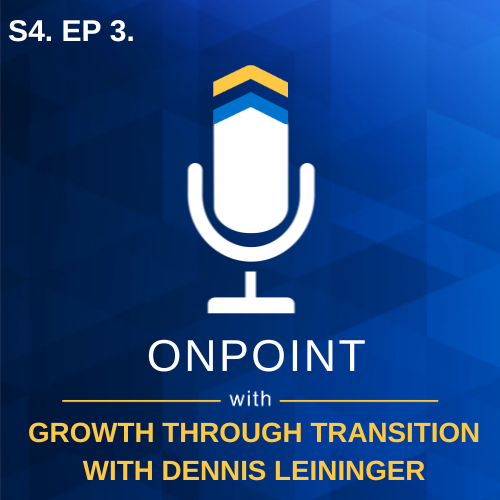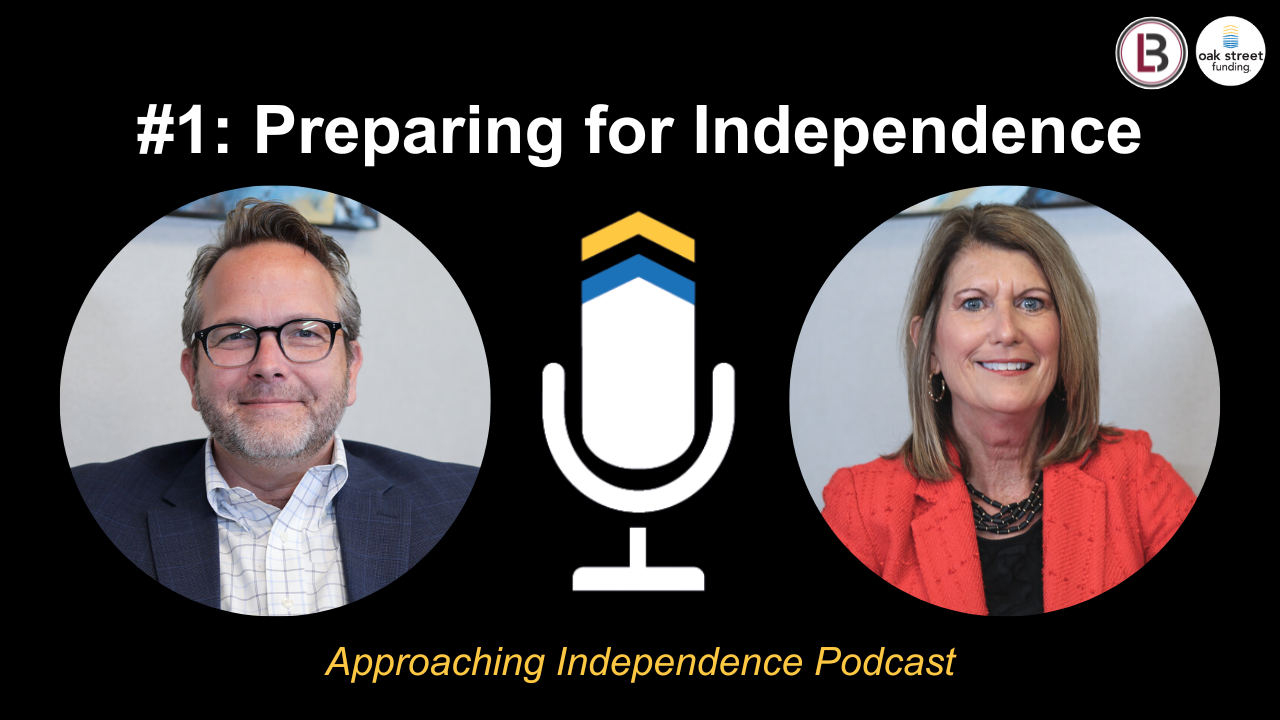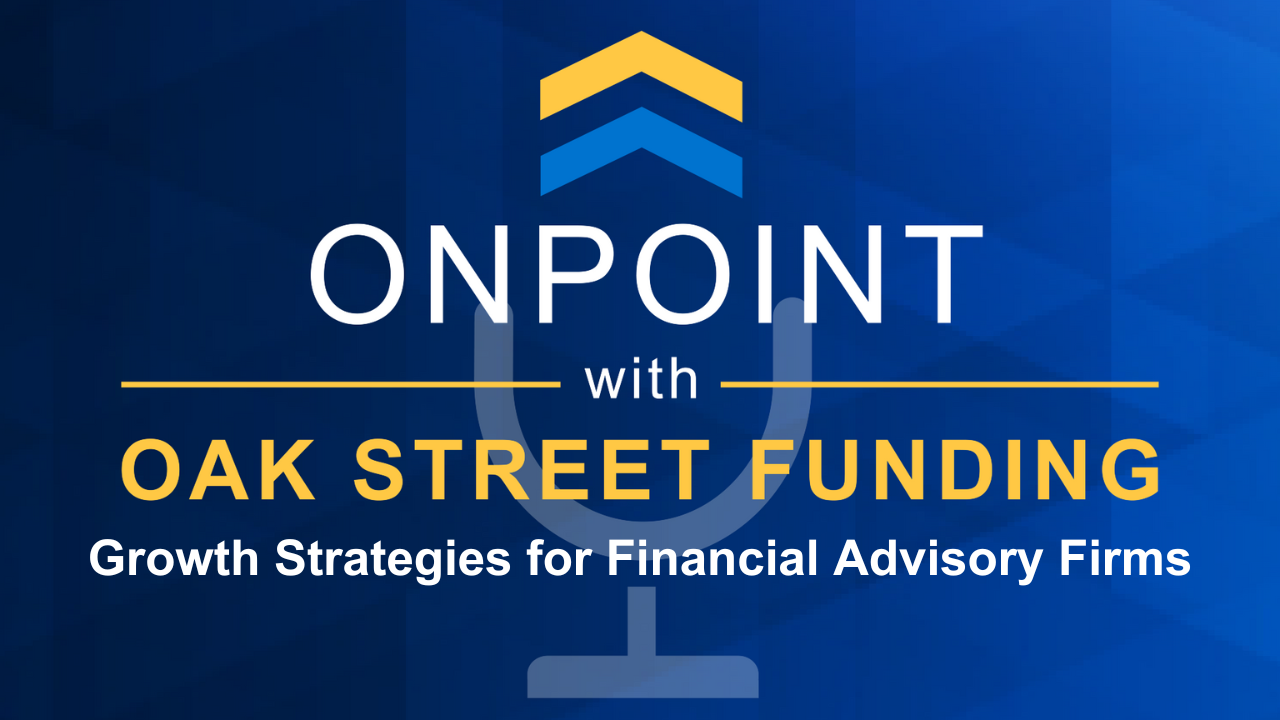S3. Ep. 5 - Setting Up for a Successful Transition with Bob Lewis
- 0.5
- 1
- 1.25
- 1.5
- 1.75
- 2
Bridget Haight: Hi, and welcome to On Point, a podcast by Oak Street Funding where we bring research and data- backed insights to dig into the minds of industry leaders, to learn how to stand out, navigate and break through this ever changing industry. I am your host, Bridget Haight, and you can support this podcast by following us on Spotify, Apple Podcasts and our website, or really wherever you get your podcasts. We will be there hanging out, talking to the industry leaders and ready to empower you to grow your business. Now let's get On Point. So today I am delighted to have Bob Lewis, president of the Visionary Group, join me on this show today. And Bob has over 25 years of experience supporting the CPA profession with organic growth and succession. Bob helps firms design partnership buy- ins, compensation structures and multilayered incentive goals. In 2021, Bob was named one of the top 100 most influential people in accounting. So we are very excited to have Bob on the show today, as he talks about current trends and growth and successful succession in the accounting industry. Welcome to the show, Bob.
Bob Lewis: Thank you. Now everyone out there is going to be thinking, well, now we know how low the bar is set to be named as one of the top 100 most influential people in accounting.
Bridget Haight: Oh, come on. Well, let me-
Bob Lewis: go ahead and ask first question.
Bridget Haight: I'm just going to dive right in and ask you the very first question. I'm going to start off with the fact that there's a lot of turmoil in our economy, as you just mentioned, and as we see rising interest rates and inflation, how do you see these situations impacting the accounting profession?
Bob Lewis: Well, the trend has been set. It's probably just going to create more tax incentives, and more work. As we saw what happened with the PPP situation, the whole Cares Act that rolled out, Covid, all of these factors, shockingly if you peel this one back a couple years, when that all happened with Covid hitting the market, everyone thought every business in the United States was going to go away, like CPA firms were all in turmoil. It just created a record boom for CPA firms. They had so much work to deal with, so many new regulations, a lot of the regulations were unclear. Like how do you handle, you talk to one firm on how do they handle something and another firm has a completely different perspective. I think the change in economy is going to create more tax incentives, which will create more work for the CPA firms. The other thing though, I think that's going to happen too, is I think it's going to accelerate exit strategies. Because people are going to get a little more concerned. We've still got a pretty material aging baby boomer workforce and they're going to be concerned. The interest rates, if we go with normal history, rising interest rates have a tendency to maybe deflate pricing and values because the cost to do the acquisition has more capital needed on the back end at a higher cost. So we're going to see how that plays out. But if you combine that with what's going on with the whole aging baby boomer piece, and if they're already acting, which they are, we've had interest rates rising, it actually may end up deflating values on firms a little bit further. And that's a hard pill for some firms to swallow, because they're going to have to address that factor when they go to do a transaction.
Bridget Haight: So what trends do you see ahead for accountants?
Bob Lewis: Okay. Most of them are probably going to start to lose more of the hair dealing with the remote workforce. But the real trends we see is massive diversity in revenue. Firms have gone from heavy compliance, which is traditional audit, tax, accounting kind of work, to more bringing in CRM consulting firms, bringing in cyber, doing investment banking, doing medical consulting, any kind of specialization that doesn't really require a CPA to make it happen. We see a lot of the 10 to 100 million dollar plus firms, they're going to 20, 30, 40% advisory revenue. And that's a big change, it's a big change in their culture. Most firms have about an 85% repeat work rate in the compliance industry. Because the audit always comes, the accounting always comes, the tax work always comes. So the question is just keeping it. So their training systems, the whole methodology set up on client experience, client retention, client services, and not so much on selling and bringing in new work. When you start to bring in consulting organizations and start to blend them in with the CPA firm, that's a whole different mindset. Most consulting firms, they're always selling. They're always looking for work, because they're working project based more so than annuity. And that that's a different culture, different values, different pricing, different mindset on how they approach it. That's where I think the biggest thing's coming up. The other part too is outsourcing. A lot of firms have religiously hung onto, well, we don't want to outsource to India, or the Philippines, or South Africa, or Venezuela or whatever the country is of choice for that particular moment. And there's been a lot of, probably the best way to think about this is there's been a lot of exploration over the last five, 10 years in outsourcing. Outsourcing's been longer than 10 years, but it's changed a lot. And with the shrinking workforce of CPAs in the United States, I don't really see an option here. If they don't begin to outsource to foreign countries, they're not going to really have enough staff to do the work. And right now there's more jobs available in foreign countries than there are United States for people who want to do accounting work. It's just a question how they manage to adapt and integrate that into their system, and finding the right solution that works for each firm. That's something that's been a challenge for a lot of firms. They've gone through some trial and error on it. It's kind of like when a lot of firms do a merger acquisition the first time, first couple times, sometimes they make a few mistakes along the way. And they're like, " Oh, we did a horrible deal and we'll never do that again." It's no different with outsourcing. Some of them have made some mistakes, need to figure out how to adapt and then how to move to the next level. But the other choice is if you don't do it, where are you going to get your staff from? And that's another thing that's happening in this industry right now. There's a lot of change in their client base.
Bridget Haight: What advice do you have for firms looking to grow in this current environment with all the challenges facing firms?
Bob Lewis: For somebody who does a lot of merger and acquisition, my first advice is to sell. But that's, okay, seriously now. Okay, not everyone is supposed to sell, that's a little self- serving. They need to stop being dependent on CPAs. That's the first thing they got to get into their head. If they're going to build the business model to be dependent on CPAs only, or accountants, I'll use a non- CPA word. Because CPA is a United States thing. So if we're going to hire a tax professional out of India or a remote auditor from the Philippines, they're going to do the audit work, they're going to do the tax work, they're going to do the accounting work. But if they don't embrace that model, and they can only push their clients so far on fees, and they can't get enough staff, there aren't going to be a lot of choices. So the other option where a lot of smart firms have been doing this, is they're building up their advisory services. They've got a large installed base of clients, how do we solve this installed base of clients, other services that they need outside of audit tax and accounting? And the CPA does one thing that a lot of people don't do, everybody looks at them as really that value added advisor, because they get their hand on people's money. And that's an important factor. And all the CPAs, they're all really good people that are trying to do the right thing for clients and trying to help them build their value. But there's so many other things they can be helping with, exit planning, helping them address their IT issues, maybe their HR issues, how they actually run the business. And they have a large installed base of clients, so the question is how do they take that installed base of clients and start bringing in other groups to be able to help support that base and then make a little money off of it in the process? For some firms, as they get more advanced, they're going to bring the advisory firm into the firm instead. Instead of partnering with them, they'll bring them in and they'll merge them in or acquire them. That's where we see the big thing is. The other part is, and this is a really tough one for firms to do, firms have been increasing their fees. Remember I mentioned 85% of the work is repeat work in most firms, so they bid on it, they put an engagement letter out, prices go up a little bit, but prices aren't going way up. So what's happened in most firms, since there's been a staffing shortage for so long, the staff is not really good at selling. And so Bridget, when I send you a bill that increases your fee by 30% this year, you're going to go, " Wow, that's a big increase." And you may pick up the phone and call me. Now I need to be able to explain to you why we're doing this, and be able to... I don't want to use the words calm you down, but make you feel comfortable about why we did this and why we had to do it. Not a lot of the partners and firms are comfortable having that call. So some of them won't increase fees, some of them think the fees shouldn't go any higher because it's not right for the client. But they're taking it on the back end with increased compensation for staff that's coming through. So they have to look at their overall picture, and selling is a huge part of where CPA firms have got to move into. Because if they're not able to do that, they'll never be able to up their advisory arm and ask their clients questions outside of compliance. That's the biggest, to me, the biggest part is looking at the current clients you have right now, and figuring out which one should you be keeping? And that's a lot of relationships there that are in place. Because if I've worked with you for 20 years and you don't really fit my firm where it's going now, that's a hard conversation for me to have with you. And maybe one I don't want to have, because we've got a personal relationship as well. It's difficult for a lot of partners and firms. So that's to me, where I would be heading if I had a firm right now, is looking at growing that advisory sector and really looking at alternatives to just a hundred percent compliance work, because I think you're going to have trouble staffing. The other part of that is recruiting. So if you're a young recruit in a limited pool of recruits that are out there, you've got to look like an attractive firm to that recruit for them to want to come to you. And if you're not looking like you're moving into the advisory sector or offering really more, I won't use the word cutting edge, but more technology focused, they probably are going to go to another firm. So you're going to find yourself with more difficult of a time getting staff to come over if you're a heavy compliance focused firm without any distinct edges.
Bridget Haight: My next question is, private equity continues to play a big role in many mergers and acquisitions. So what influence are you seeing from PE on the industry?
Bob Lewis: Okay, so right now private equity's only played a factor in a couple of larger firms. So here's the trick with private equity, and there's a lot of us consultants out there who all have opinions on things and they aren't always right. I'll be the first to admit that. Although we are the Visionary Group, we don't always get the vision completely right. But where we see the market right now, look, if you take a $6 million firm, a private equity organization cannot have a controlling interest in a $6 million firm that does 40% audit. Because a private equity, to do audit you have to have a majority ownership that has a CPA license. So they set up what's called a alternative practice structure in a deal like this. Where they'll take the audit, the assurance work and put it into a different company, and put the tax and accounting and consulting in another. So if I'm going to buy into a $6 million firm and it's got 40% audit work, really what I'm doing is looking to buy a controlling interest in a $3.6 million firm. Now, those who are in the private equity are going to go, " he doesn't know what he's talking about," now because there's ways to get around it. Yes, there are ways to get around that ownership component and transfer revenue. But the point of the matter is the private equity firms right now are focused on larger targets. And when the larger target is done and in place, that larger target will have the infrastructure to be able to roll up smaller entities into it. But this has got a little bit of time to go to figure out how this is going to work. And there's a lot of backlash, because a lot of firms do not want to give up controlling ownership. Now, I've heard in the market that they're going to go from a 70% ownership down to what's called a limited ownership, where I buy 35% of your firm, Bridget, you still have controlling interest but I have a 35% interest in the firm. So I'm going to coupon flip 35% of the distributions every year for the money I give you, to basically bail out and pay out your exiting partners. One of the drivers on all of this is partnership agreements have a limit on how much money they can pay out to an exited partner per year, percentage of revenue that they can pay out. So if you've got two exited partners already and then I'm going, I've got eight more coming in or 10 more coming in, or whatever the number is, I may exceed that limit and they need funding to buy that out. So once they take the buyout liability away from private equity buying them out, it frees up cash inside the firm to be able to distribute more to the partners that are left. But the distribution component won't be a full hundred percent, it'll be a limited capacity. That's where there's a lot of turmoil going on right now. It's interesting. Without the change, things would go as is and the private equity provides a really good solution for some firms, but not for everybody. It's yet to be seen how that's going to play out. On the other side, on the non- accounting businesses that these CPA firms are looking to acquire, the tech companies, it's creating havoc in there. Because the private equity companies have been paying into that space for a long time, so if a CPA firm's looking to buy a tech company or a consulting company, private equity's going to leave that market forever. So that changes the amount of cash that goes up in front of a deal. For a CPA firm, often there's not a lot of cash up front on a deal. On buying a tech company, there's often significant amounts of cash involved, and that's also a different purchase model. So it's interesting out there.
Bridget Haight: My next question. Some business owners see the coming trends and they realize their firm's value may never be higher than it is right now. So they begin to plan their retirement and their selling of their firm. So what are the keys to a successful succession plan? Say that 10 times.
Bob Lewis: Yeah, I get that. The first thing we see across the board, really clear communication. Often the succession team is not sure what the buy- in process is, how the funding works. And it's one of the things, I don't want to do an infomercial for Oak Street, but I know one of the things that you do as an organization is you provide capital funding for partners to buy in. And by the way, it was not something that was pre- programmed by Oak Street for me to say. I just want to clarify that. It's interesting. So the options are when partners buy in, the firm can fund it, which really is gifting them equity if you ask me, if that's the way they're going to do it. Or they can go to a bank and get a loan, or they can go to Oak Street or somebody like Oak Street who's got a program set up for CPA firms to do this, to get the funding to buy in, to put money in the capital account. The question is how much money? So that's where firms struggle. If I want to buy 10% of a$ 10 million firm, that has a million dollars in value. I'm likely not going to be able to put a million dollars into the capital account because I don't have it. Even if you pay me with distributions for the next X years, that's going to probably make me cash poor for a very long time. So the way you structure the buy- in program inside for a successful succession team... I was able to get that out by the way, successful succession team. I got that out.
Bridget Haight: Well done, well done.
Bob Lewis: So the way they do the buy- in is you set up the buy- in program so that 10% may only cost me a quarter million dollars. But the thing is I'm not going to own that 10% until maybe 20 years. So it's a vesting period, it may be a 10 or 15 or 20 year vesting period. So I'm getting a percentage of that interest every year, like ownership. I'm paying the money into it, but if the firm sells, I don't get 10%. So in a great situation is I buy into a firm, the firm funds me my money, they give me 10% ownership and the firm sells tomorrow. Do I get 10% of a $10 million firm? No. So there's ways to, I would have a percentage maybe of that. After a couple years I'd have a percentage, I wouldn't have the full 10%, maybe I have 2% if they sold in two years or whatever the number is. There's ways to structure that, but most firms it's very unclear. It's unclear with the succession team what the buy- in is, and how my ownership works and how that works. The other part is the succession team often doesn't understand the value of the firm, or needs to know what they're buying into. They also don't know how much money they can make. So in some firms, I've talked to some managing partners and the first thing you do is they'll tell everybody, " You could come up to me in the hallway and I'm going to tell you exactly what I make. And you want to know how I make this money and how you want to do it, I'll tell you how to do it." All that was guarded like it's what used to be gold in Fort Knox. That's an aging story because I don't even think Fort Knox is around anymore. But they would guard it, they'd guard the compensation because they don't want the staff to know how much money they make. And the one thing about staff is staff needs to understand it took partners a long time to make that money, to get to where they're at, to making the compensation they're making. So it may seem like they're making too much money for some firms to want to disclose that, but they got there by taking all the risks. And if you want to get to that same level, I can tell you how to take those risks and how to become a partner and a firm and to do these things. But to do these things, you have to do these steps. It's all about communication. The other thing we see too is partnership agreements. I've never seen this much activity in my lifetime of firms coming at us with partnership agreement issues. inaudible, so if we have a partnership agreement, I now want to make you a partner, Bridget, in the firm, and the partnership agreement has either a different value based on it than maybe what the market's at today or has other terms in there that are not favorable, they may need to revisit their partnership agreement. Because it may be restrictive on how I'm able to offer you partnership. Which is impeding a lot of the succession as well. That's been coming out more and more recently, is partnership agreements are just a little bit outdated. It's kind of something that's often written and not updated as often as perhaps you'd think you'd want to. Because until it becomes a problem, it's not a problem. That's something to look at too. If you're a firm and you've got, you're looking at trying to create an internal succession, the question is what's the value of the firm in today's market? You need to have a good handle on that. And you look at your partnership agreement, look at how you're communicating to staff, and then look at telling them how they can make the money and what the path is to make the money, and then giving them some training. But to me, the biggest problem I see right now with succession, which is going to probably kill one of your future questions, is staff can't sell. And if staff can't sell-
Bridget Haight: - Oh, staff can't sell. Right.
Bob Lewis: So if I'm going to sell my firm to you, Bridget, and you're going to pay me out over the next five years or 10 years, or however the program's designed, and you can't bring in work, and then there's seven of you that I'm selling this to and the seven of you can't bring in work, how am I supposed to feel comfortable you're going to be able to make my buy out? That is the crux of the problem on almost every single succession firm we talk to. If staff doesn't see the opportunity, they will not understand the opportunity. That's the other part too. And you can't do a succession plan two months, two years in advance. You need to be doing it much further in advance, and putting people into a six month sales training program to get them to sell is not going to solve your problem. It takes decades to learn how to sell. And some people are just never going to be very good at it, others are going to excel quite quickly at it. So didn't mean to cut you off, but why you don't go ahead?
Bridget Haight: No, glad you got that in. Okay. So the next question that I have then, what are the main deal killers that you see that frequently cause a deal to fail?
Bob Lewis: Okay. Number one almost across the board, is the firm doesn't ask the right questions. They're not sure what questions to ask and how to approach it. But the more financial terms you can grab onto, the number of 1040s a firm does and the price on 1040s, that's our first sign of distress inside any single firm. So I see a firm doing... A pretty common conversation, I'll see a firm doing 1,000 or 1,500 1040s and they're doing them for $500. Nobody can take that firm, it's almost impossible. I shouldn't say no one. We have some clients that can take that, and there's some alternative solutions in the market that can take that on. But it gets more complicated. And really, that's one. Two is the number of billable hours at a partner level. So we see partners billing 1,500 hours, 2,000 hours a year, sure that increases profitability. But I can't replace a 1,500, 2,000 billable hour partner without multiple staff. And that becomes a problem too. The other things we see that cause issues here are unrealistic value expectations. So I think the firm's worth 1.2 times multiple of my revenue, too high. The other thing inaudible too is partners really want to stay. I want to sell you my inaudible, but I don't want my compensation adjusted and I want to stay forever. So time expectation guidelines are really critical here in most of these situations. And that's where we see deals fall apart. Because I want to stay until I'm 70, 75, and I want to be an equity partner, in most firms that just does not work. So people have to come into it with a realistic expectation, or understand it's not time for them to merge or sell, and they have to continue to take the risk on their own.
Bridget Haight: Okay. Can you give us an example of a small to mid- size firm succession that went really well?
Bob Lewis: Yeah. We have one that's in the Southwest that we did last year. They're in the five to $ 10 million range. I don't want to get too definitive. But they had a pretty good idea of what they wanted to do, but they needed us to validate it. So what they did is they had us interview the succession team, what they're looking for, what their thoughts were, what challenges there were. What was interesting is a couple of the succession team members said some things we didn't think they were going to say. They were unusual. And the firm had no idea what these people were thinking. But one specifically stood out. They said, well, this one person. I'm going to use he or she so there's no gender on this one. So, he or she, they thought he or she would be really good, but they didn't think he or she had any interest in become an equity partner. So we talked to that person and they said, " Here's my situation. My spouse and I made a rather large investment in some property and we needed every single nickel we have right now that we make to put into this property. I can't afford to buy into the firm." So they had no idea that that was the obstacle. They thought he, she had no interest in doing this. The obstacle was the money there, didn't think that was an option, which they then were able to turn around and talk to that individual and work the situation through. Because very important person to the firm, they just thought no interest on their part. So why should we invest or even try to make this inaudible? That's the kind of stuff that comes out of the conversations. Because people are afraid to talk about, look, there's some risk here. So if I tell you, Bridget, I'm not really interested in becoming a partner at Oak Street, that doesn't mean there's not a career for me at Oak Street, but it may be kind of risky. Because you're thinking, well, I needed Bob to come in as a partner at Oak Street so we would be able to work our succession through, because you do need partners my age at Oak Street by the way, because that'll solidify your succession. But the point is, it's a little bit risky for me to talk about that if I'm an employee looking at succession. And they may think, well, if I'm not interested or say I don't want to lead, what often the reason is that they don't want to buy into or they don't want to lead is because they have a skill gap or a money gap, most of it's misconception. Some of it, some people honestly just don't want to leave. They want to be lifetime managers. That's okay. Knowing that isn't a bad thing. Because now they can create a career path for that lifetime manager that's profitable for him or her. But that conversation needs to be open. That's where we see big problems in that. If I can, I'll throw you one on really, I guess the succession stories that didn't go well.
Bridget Haight: Yes, that was actually my next question. Very good. Thank you.
Bob Lewis: Okay. The answer is you could laughingly answer this, is any firm that merges up is a succession story that did not go well. And that's not a hundred percent true, because some of the firms merge up for economic reasons. I hate to use the word synergy, but it's a good fit, they can tap into the advisory. There's reasons why firms merge up. Often though firms merge up because their succession plan fell apart, which is one of the problems that we see. The common threads, to get back to again, I got staff that can't sell, so I'm a little unsure about how you're going to fund my buyout at the end of the day and it's a little bit too risky. The real culprit where we see where succession doesn't go well, firm's way too long. I got a call from a 63 year old partner here. She has three or four other partners all in the late fifties, the sixties, and their bench is maybe not as well formed yet. Bench doesn't know about a buy-in, bench is unsure. And at that point, if they're looking to get out in three or four years, it's too late often to start it. And I know a lot of people will try and band- aid things and put them into a sales training program or camp, or put them into some kind of consulting thing like that. It will work only for a limited number of people, and it'll work better for the younger people. Because younger people in the thirties and forties are going to be there for a longer run where they got more time to develop those skill sets. But if I expect the 40 year old to be able to sell, who's never sold before... And that's one of the things, you know that gap we talked about initially about shortage of staffing?
Bridget Haight: Yes.
Bob Lewis: Okay. As a result of that, since I had less people for 20 years, I gave those people work to do. I didn't ask them to go out and network, I didn't ask them to bring in work because we had more work to do, I needed people to do the work. Now I've got that person who's 45 or 30, or 40, 45, 50 who wants to be a partner, has no network, has never sold. That's a tough spot for me to be in, because how do I take that inaudible and convert him? And at that point, not that a 50 year old can't learn to sell, or a 45 year old, but it's not his or her skill set. And it's not something maybe they're comfortable doing, and now it becomes a more difficult conversation. That's been my experience so far.
Bridget Haight: Thanks Bob, this has been lovely. I really appreciated the interview.
Bob Lewis: I appreciated the time. Now you didn't ask me the last question, which I thought was-
Bridget Haight: Yes, I didn't. Okay, hold on. You've prepared, you're excited to answer this. All right, then I'm going to ask, here it is: Finally, we can't let you leave the show without asking you if you could have dinner with anyone real or fictional, who would you choose and why?
Bob Lewis: And so I could have gone to traditional Abraham Lincoln, or George Washington, or Sister Teresa or something like that. I chose William Shatner. Now, why William Shatner.
Bridget Haight: Why William Shatner?
Bob Lewis: I would like to know how that man with his limited talent, was able to create a net worth of$ 100 million and have a 50 year TV and movie career. He must be really, really smart. Because there's no other way all of those things could have happened. For him to be able, I actually looked up his net worth. It's like$ 100 million dollars. So I'm like, that's pretty impressive. And you look at all his movies in his career, most people remember him from Star Trek, that one couple year episodes of Star Trek, and then all those bad movies he's made over the years. But hey, he amassed fortune and he's an American icon. So, I think that would be fascinating.
Bridget Haight: I love that. Great answer, now I know why you wanted to answer it.
Bob Lewis: Oh yeah, definitely. I thought about that and I'm like, you can go the traditional kind of stuff, but William Shatner would be an interesting play. inaudible.
Bridget Haight: Thanks Bob, it's been great.
Bob Lewis: Thank you very much.
Bridget Haight: Thank you all for listening to On Point, a podcast by Oak Street Funding, where we bring research and data backed insights to dig into the minds of industry leaders to learn how to stand out, navigate, and break through this ever changing industry. I'm Bridget Haight, and tune in next time wherever you listen to podcasts. See you then as we get On Point. And don't forget to subscribe and leave us a review. Thanks for listening. To get in contact with someone at Oak Street Funding, please call 844-353-8022. That's 844-353- 8022, to learn more.
DESCRIPTION
We have Bob Lewis, President of The Visionary Group, join me on the show today! Bob has over 25 years of experience supporting the CPA profession with organic growth and succession. Bob helps firms design partnership buy-ins, compensation structures, and multi-layered incentive goals. We are excited to have Bob on the show today as he talks about current trends, growth, and successful succession in the accounting industry.
Today's Host
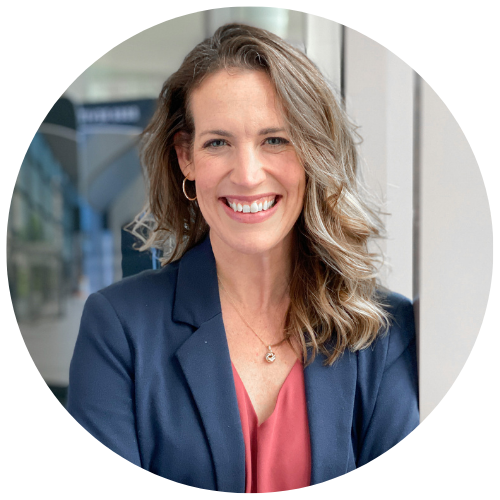
Bridget Haight
Today's Guests


